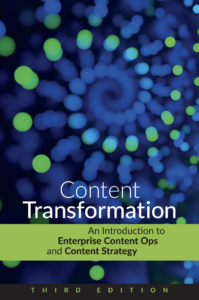Conferences versus social media
The information you can get from a conference presentation is usually available online—in blogs, webcasts, forums, and/or white papers. So why should you invest the time and the money to attend an event in person? In the end, there’s something very powerful about eating and drinking with a group of people. (And no, alcohol is not required, although it doesn’t hurt. Until the next day, when it hurts a lot.)
The value of conferences, which is not (yet) replicated online is in the “hallway track”—the discussions that happen between the formal sessions:
“[B]eing able to establish a one-to-one personal connection with other professionals in your field is critical to being a success.” (Dave Taylor in The Critical Business Value of Attending Conferences)
“I’ve found that time and again, I’ll hear speakers or audience members or participate in conversations and lie awake that night jam-packed with new ideas (some that don’t even correspond remotely to the concepts discussed that day). Conferences are a brainstorming paradise and a terrific opportunity for new ideas to come bubbling to the surface.” (Rand Fishkin, The Secret Value of Attending Conferences)
Scriptorium has quite a few social media “features”:
- This blog, started in 2005
- Webcasts, 2006 (recordings available for recent events)
- Forums, this week (currently in the “awkward silence” phase. Help us out by posting, please!)
But there’s something missing. I’ve attended and presented quite a few webcasts, and I can tell you that it’s actually far more difficult to deliver a compelling webcast than a compelling conference presentation. As the presenter, you lose the ability to gauge your audience’s body language. As an attendee, you have the temptation of your email and other distractions. The audio coming through your computer or phone is somehow not real—it’s easy to forget that there’s an actual person on the other end giving the presentation online. (There’s also the problem that many webcasts are sales pitches rather than useful presentations, but let’s leave that for another time.)
In my experience, it’s much easier to sustain online friendships with people that I have met in real life. Even a brief meeting at a conference means that I will remember a person as “that red-haired woman with the funky scarf” rather than as an email ID or Twitter handle. So, I think it’s important to go to conferences, meet lots of people, and then sustain those new professional relationships via social media.
In other words, conferences and social media complement each other. Over time, I think we’ll see them merge until a new interaction model. For example, we are already seeing Twitter as a real-time feedback engine at conference events. (Here’s an excellent discussion of how presenters should handle this.) Joe Welinske’s WritersUA is experimenting with a community site tied to the conference.
What are your thoughts? How important are conferences to your career?



